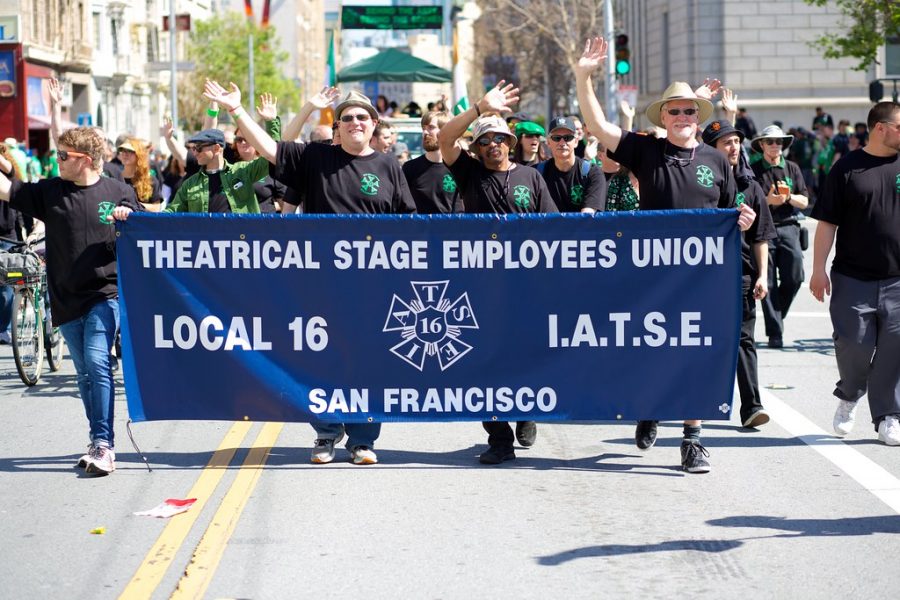AMPTP Narrowly Averts Strike That Could Have Sent Shockwaves Through The Film Industry
The cinematic union hopes became reality with a new deal for more stable conditions for their members
IATSE members walk the streets of San Francisco on St. Patricks day, proudly waving to the crowd. However, those proud waves have turned into closed fists as members march the streets with a desire for change.
More than 60,000 overworked, tired, hungry, and fatigued film workers were set to strike demanding better and healthier working conditions.
For a long time, workers on the set have been working shifts upwards of 12 hours without even getting breaks to eat their food. Noah Suarez-Sikes, a production assistant in the industry, shared his thoughts.
“You kind of knuckle under and accept this condition that you’re going to do unpaid work, you can get called to work on weekends, you can be asked to do things late into the evening and outside of work hours,” Suarez-Sikes said.
Because of conditions like these, the IASTE (the film workers union) worked on reaching out to all their members to help negotiate a deal with the AMPTP for better working conditions.
“Our goal is to reach every single one of our members and make sure they know what is going on in negotiations; where to go get more information; and, when the moment comes, how to make their voices heard by voting,” the union said in a statement to their member.
People all over the industry were speaking out about what they were experiencing. However, even with the IASTE help, many people were scared of what might happen to them if they did. Those who were courageous enough to share their stories have made a massive impact already. Mike Loomer, a set dresser in Hollywood, expressed his feelings.
“That ramp-up in production just made the work and life situation unbearable. We can’t work at that feverish pace. We are not machines. We are people that need rest,” Loomer said.
The IASTE and the AMPTP resumed negotiations back on Thursday, September 9. The goal was to get their members what they were searching for, things like sleep, food breaks, and shorter shifts. On October 16, a deal was struck between the two groups. In a letter written by 120 members of the U.S. Congress to the AMPTP, Senator Schumer and others endorsed the union’s demands.
“Failure to reach an agreement would threaten not only the livelihoods of these workers, but also their family members who rely upon work in your industry, sending shock waves throughout the U.S. economy.”


